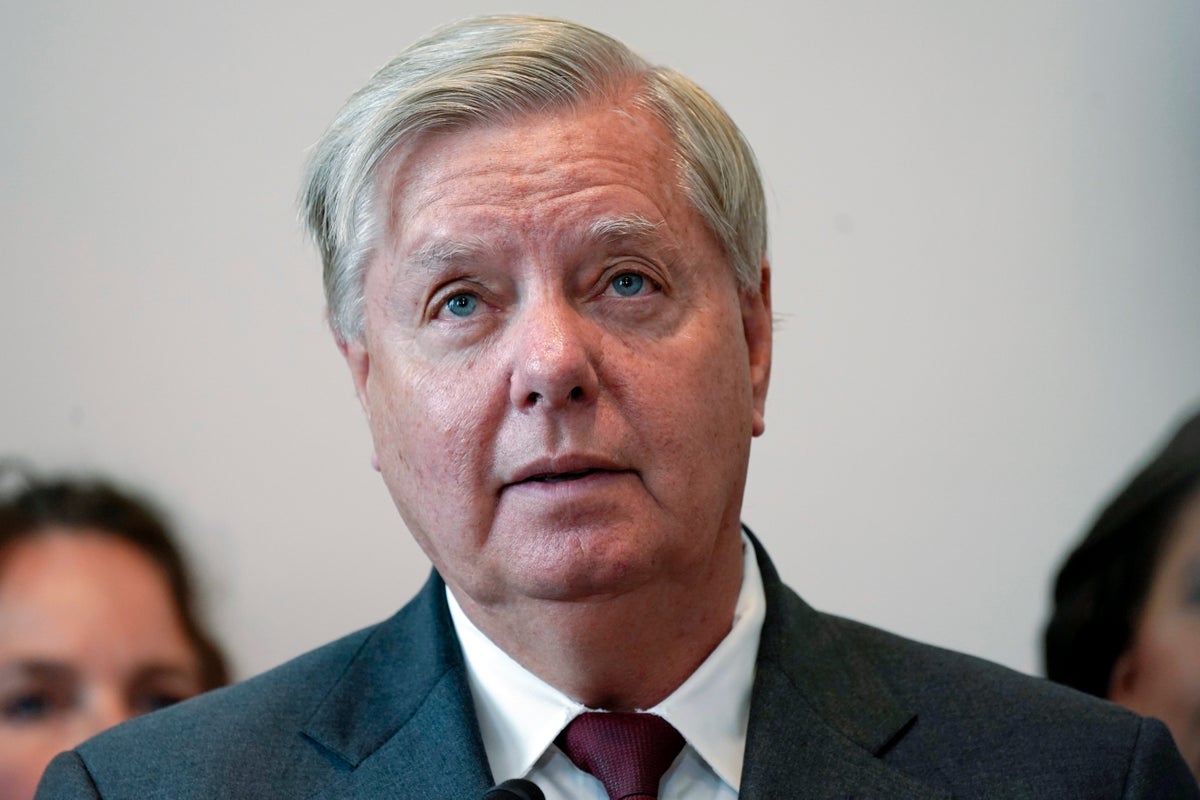
The US Supreme Court has declined to block South Carolina Senator Lindsey Graham from having to give evidence before the Fulton County, Georgia, grand jury investigating former president Donald Trump’s attempt to overturn his 2020 election loss to Joe Biden.
In an unsigned order with none of the nine justices dissenting, the court said it was not necessary to block a lower court finding that Mr Graham must honour a subpoena to give evidence before the grand jury because lower courts have already said he does not have to testify on matters relating to “informal investigative fact-finding” he engaged in as then-chair of the Senate Judiciary Committee.
“The lower courts also made clear that Senator Graham may return to the District Court should disputes arise regarding the application of the Speech or Debate Clause immunity to specific questions. Accordingly, a stay or injunction is not necessary to safeguard the Senator’s Speech or Debate Clause immunity,” the court said.
The high court’s order vacated a previous ruling from Justice Clarence Thomas which stayed a Georgia district court order permitting enforcement of a Fulton County judge’s subpoena compelling Mr Graham to testify about phone calls he made to Georgia officials in the weeks following Mr Trump’s loss.
Mr Graham has been fighting Fulton County District Attorney Fani Willis’ push for his testimony, which he claims would violate the US Constitution’s “speech or debate” clause barring members of the House or Senate from being “questioned in any other place” about their official actions.
The GOP senator had argued that his calls to Georgia officials were part of an informal investigation carried out in his then-role as chairman of the Senate Judiciary Committee.
But the Georgia district court rejected those claims and instead ruled that he could be questioned about the calls by Ms Willis and grand jurors.
After Mr Graham appealed the ruling to the US Court of Appeals for the 11th Circuit, a three-judge panel affirmed the lower court decision, writing that he had “failed to demonstrate that he is likely to succeed on the merits of his appeal”.
Mr Graham again appealed the ruling last week, this time to the Supreme Court, which divides supervision of appeals from the 12 circuit courts among its nine members. Because Justice Thomas handles the 11th Circuit, the case was his initial responsibility.
Although many commentators criticised Justice Thomas for entering the temporary stay last week, legal experts have said it is not uncommon for a “circuit justice” to take such steps before allowing the full nine-justice panel to weigh in.
Ms Willis had argued that the high court should not block Mr Graham’s testimony because “the delay resulting from a stay would be unavoidably harmful” to the grand jury investigation.







